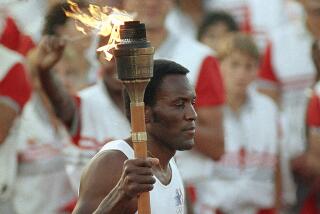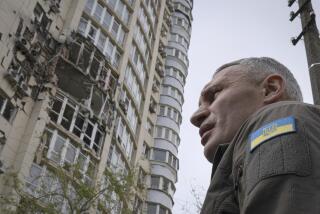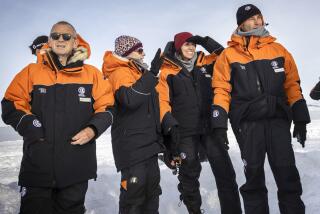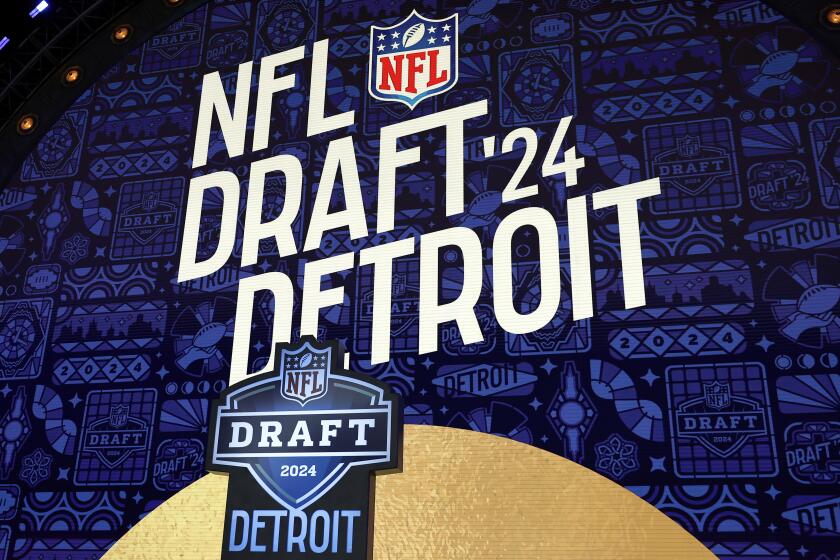Relief and a bit of revelry at Sochi Olympics’ end
SOCHI, Russia — The closing ceremony here was meant to celebrate the new face of Russia.
And after a month of intense scrutiny over human rights violations, stray dogs, unfinished hotels and terrorism threats, that face looked largely relieved Sunday and perhaps a bit too exhausted to party.
“We did it,” Dmitry Chernyshenko, Sochi 2014 organizing committee chief executive, said at the ceremony. “We conquered the Olympic summit. And these Games will be with us forever — Olympics. Cool. Ours.”
The Sochi Games ended much the way they began, with a colorful homage to Russia’s rich cultural history. Just as it had two weeks ago, the ceremony featured spectacular dancing, tributes to great writers like Tolstoy and stirring classical music piped throughout Fisht Olympic Stadium.
FRAMEWORK: Best images from Sochi
This time, however, they nailed the unveiling of all five Olympic rings.
During the opening ceremony, a giant hydraulic snowflake failed to transform into one of five interlocking rings dangling above the stadium. The mishap made international news, as some jokingly suggested it could be an omen for President Vladimir Putin and the $51-billion Games that were meant to demonstrate Russia’s strength and superiority under his leadership.
The Russians seemed to briefly mock those jabs — and themselves — during the closing festivities as 700 performers in mirrored costumes formed small circles that blossomed into the rings. The fifth circle purposefully refused to transform into the fifth ring for a few seconds and then drew a large roar of approval from the crowd when it finally acquiesced.
Though most closing ceremonies take on a block-party atmosphere with athletes dancing and singing together, the Sochi athletes spent the majority of the event seated quietly in the stands as if attending a college history lecture.
They left their seats only at the very end, when English-language pop music was pumped through the sound system and they were invited to dance on the stadium floor.
Organizers did show a bit of whimsy when they had one of the Sochi mascots — a giant animatronic polar bear named Mishka — extinguish a symbolic flame in the middle of the stadium. A tear then rolled down his face.
“It is a great moment in our history, a moment to cherish and pass on to the next generations,” Chernyshenko said of the Olympics. “A moment that will never be forgotten. This is the new face of Russia, our Russia.”
International Olympic Committee President Thomas Bach broke from tradition and did not bestow any superlative upon these Games as his predecessors have done at other closing ceremonies. Former IOC presidents Juan Antonio Samaranch and Jacques Rogge almost always used an adjective or two to rate the Games for spectators and TV audiences.
Samaranch often closed Olympics by calling them “the best Games ever,” while Rogge referred to the London Games as “happy and glorious.”
Bach, who took over the IOC in September, purposefully avoided such praise and instead described the Sochi Olympics as “the athletes’ games” and praised it for having “exceptional conditions.”
“Everybody with an open mind could see the face of a new Russia: efficient and friendly, patriotic and open to the world,” Bach said. “We arrived with great respect for the rich and varied history of Russia. We leave as friends of the Russian people.”
Twitter: @stacystclair
More to Read
Get our high school sports newsletter
Prep Rally is devoted to the SoCal high school sports experience, bringing you scores, stories and a behind-the-scenes look at what makes prep sports so popular.
You may occasionally receive promotional content from the Los Angeles Times.






